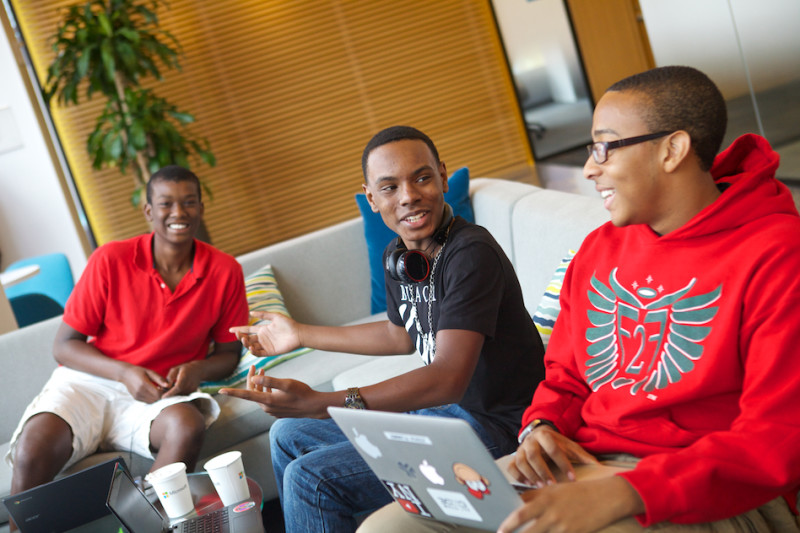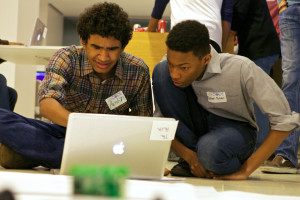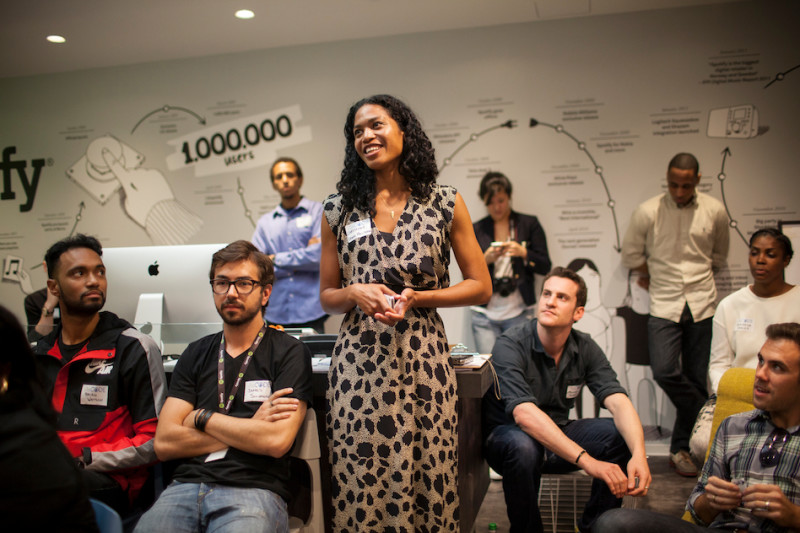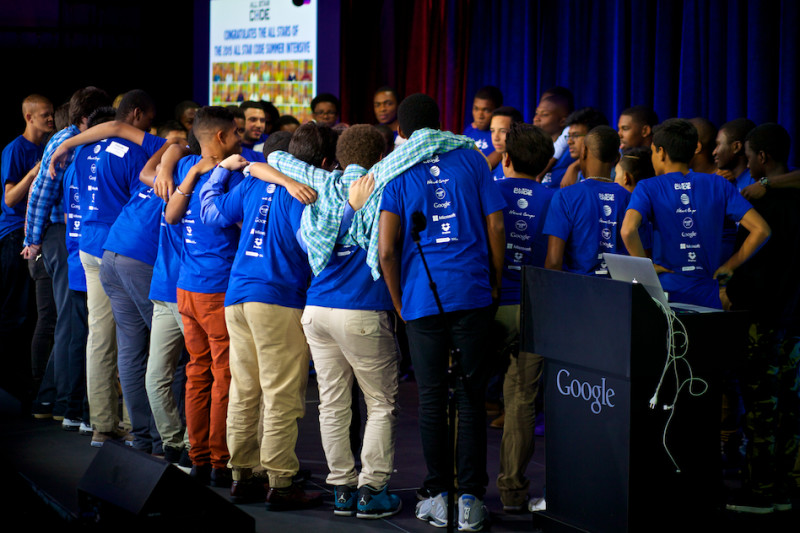
The tech industry will soon be looking to fill 1.4 million jobs with only enough graduates to fill 70 percent of those jobs. Currently, men of color only fill approximately three to four percent of tech jobs, a disparity that Christina Lewis Halpern says she and her company All Star Code hope to address.
Halpern is one of the panelists for “Cracking the Codes: Why Black and Latino Boys Matter.” The session will discuss startups and the lack of opportunity men of color have to access those jobs, among other unsettling trends.
From an economic standpoint, Halpern is looking at the anticipated 123 million tech job openings in 2020. At the current rate, however, there will only be 50 million skilled workers to fill these positions.
“We need more engineers for our nation’s health, but also, this is a huge opportunity to address economic inequality in this country,” Halpern said. “The jobs are there and everybody’s looking for them.”
All Star Code is a selective coding and engineering program in which bo ys of color can learn the skills needed for these jobs.
ys of color can learn the skills needed for these jobs.
Halpern says the program is primarily black and Latino males, but the organization has also accepted other underrepresented minorities before. The candidates are all in high school. This is the age she says is crucial for the young men to be introduced to the culture.
“We strongly believe that you can’t just teach coding,” Halpern said. “There’s this false idea of meritocracy where as long as you give students a computer and a working internet connection, if they have the right stuff to be an engineer, they’ll take to it and love it and self-educate online…that’s really mistaken and doesn’t take into account the different barriers, both cultural and institutional that people of color face in this field.”
Halpern also says the program focuses on minority males because there are so many programs helping females. Which is still extremely important, she said, but minority males are getting left behind.
Many of these minorities are not easily accepted as peers, for example, if they attend a hackathon. All Star Code teaches their students, not only technological skills, but also the sort of cultural skills that they may not have been exposed to.
They are taught how to make a presentation, how to communicate about their projects, making their own projects outside of the classroom and collaborating with others.
“If you haven’t gone to hackathons, participated in hackathons, built things on your own, you won’t really have the right skills to thrive in a technology company, large or small,” Halpern said.
Halpern says there’s also additional weight put upon men of color who do pioneer into the tech field. They are instantly role models in diversity, and often looked to by diversity committees, expected to mentor more students and speak publicly.
There are a few things startups can do to include minorities. Halpern says that posting jobs publicly, instead of hiring friends or people in their existing networks, can exclude many qualified job seekers.
“Entrepreneurs need to think more specifically about the actual skills that they’re looking for in someone,” she said, “and not just profile the type of person that they want.”
Making cross-cultural relationships is something she says should not only be emphasized in the workplace, but also in a personal capacity. Putting yourself in an uncomfortable place and befriending someone who isn’t like you can change the norm.

The panel will discuss the idea of diversity debt – the idea that diversity is something that needs to be incorporated in the structure of a company from the start, and will otherwise fail when the company retroactively tries to diversify their staff.
The panel will talk about the Black Lives Matter Movement and how minorities in the tech industry can involve themselves and what it means for them. The panelists will also share stories and those of the students they’ve worked with.
“We intend to speak specifically about the challenges that black and Latino boys face, but from a personal perspective,” she said.
Halpern will be discussing these topics with Marisa Lee, the managing director at My Brother’s Keeper Alliance – another program to create opportunity for boys and men of color. They will also be joined by Marcus Mitchell, senior engineering director at Google.
The technology industry can not only help with increasing diversity, but people o f diverse race can also help change the industry, and the world.
f diverse race can also help change the industry, and the world.
“Technology today isn’t just about wealth creation, it’s about building the tools for how we change the world and change lives,” Halpern said. “Facebook isn’t a website, it’s really … how we learn things, how we share things, how we communicate and build our friendships and communities, increasingly how we discuss things.”
When and Where:
Friday, March 11
5 – 6 p.m.
JW Marriott – Room 303-304/ 110 E 2nd ST
Find out more: Cracking the Codes: Why Black and Latino Boys Matter
